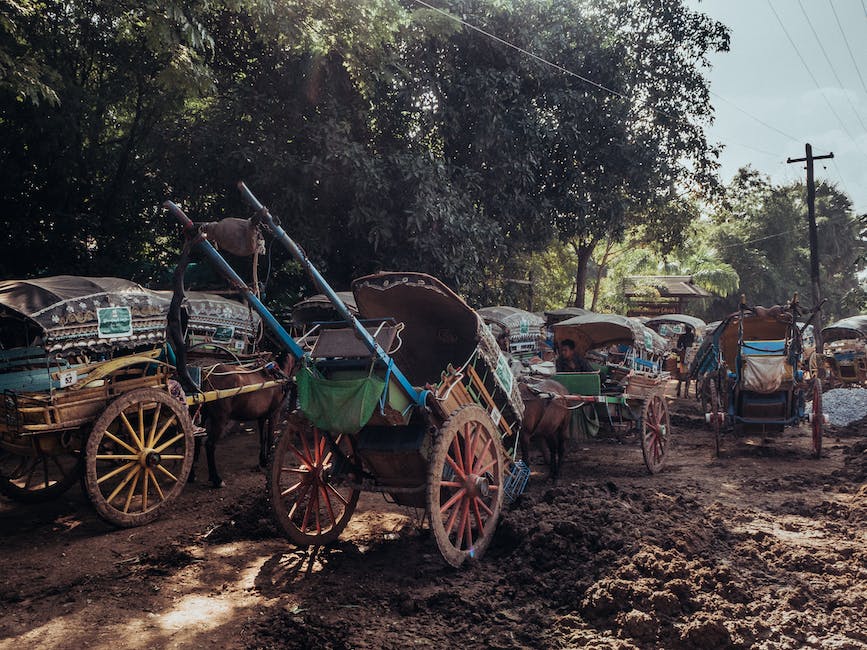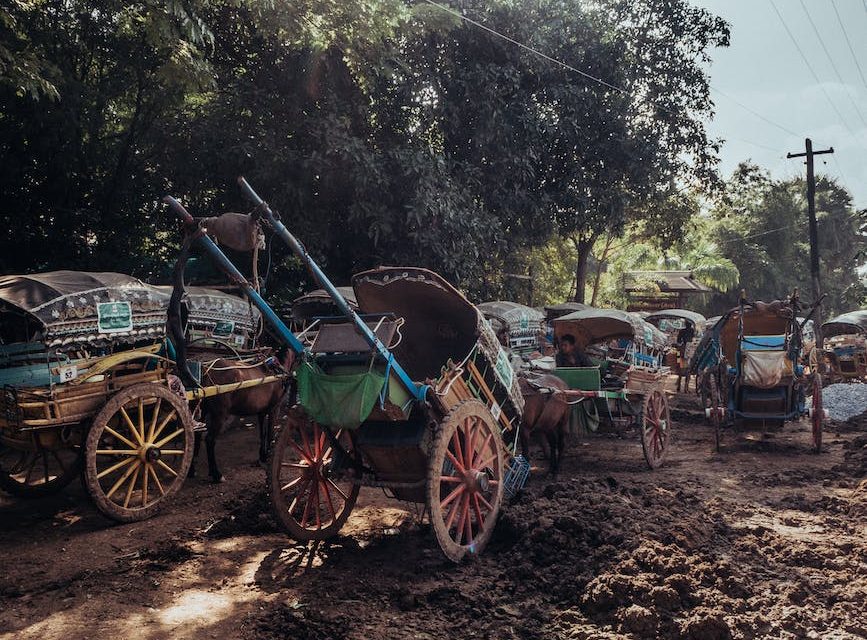Table of Contents
- Introduction
- The Role of Tribal Leadership in Arab Nomadic Traditions
- Adaptability and Resilience: Leadership Lessons from Arab Nomadic Cultures
- The Importance of Collective Decision-Making in Arab Nomadic Leadership
- Exploring the Gender Dynamics in Leadership among Arab Nomadic Communities
- Q&A
- Conclusion
“Arab Nomadic Traditions: Embracing the Dynamic Path of Leadership”
Introduction
Arab Nomadic Traditions: Understanding the Flexibility in Leadership
Arab nomadic traditions have long been characterized by their unique approach to leadership. Unlike more rigid hierarchical structures found in many societies, Arab nomadic communities exhibit a flexibility in leadership that allows for adaptability and collective decision-making. This essay aims to explore the key aspects of Arab nomadic traditions that contribute to this flexibility in leadership, including the role of tribal structures, the importance of consensus-building, and the emphasis on personal qualities rather than formal titles. By understanding these traditions, we can gain valuable insights into the dynamics of leadership within Arab nomadic communities and appreciate the significance of their flexible approach.
The Role of Tribal Leadership in Arab Nomadic Traditions

Arab Nomadic Traditions: Understanding the Flexibility in Leadership
The Arab nomadic traditions have a rich history that dates back centuries. These traditions are deeply rooted in the desert lifestyle, where tribes would move from one place to another in search of water and pasture for their livestock. One of the key aspects of these traditions is the role of tribal leadership, which plays a crucial role in maintaining order and ensuring the survival of the community.
In Arab nomadic traditions, leadership is not fixed or rigid. Instead, it is flexible and adaptable to the needs of the tribe. This flexibility is necessary due to the ever-changing nature of the nomadic lifestyle. As tribes move from one location to another, they encounter different challenges and opportunities, and the leadership must be able to respond accordingly.
The role of tribal leadership in Arab nomadic traditions is multifaceted. On one hand, the leader is responsible for making important decisions that affect the entire tribe. These decisions can range from determining the best route for migration to resolving conflicts within the community. The leader must possess a deep understanding of the tribe’s needs and priorities in order to make informed decisions.
On the other hand, the leader is also responsible for maintaining the unity and cohesion of the tribe. This is particularly important in a nomadic lifestyle, where the tribe’s survival depends on its ability to work together as a collective. The leader must be able to foster a sense of belonging and loyalty among the tribe members, ensuring that everyone is committed to the common goals and values of the community.
One of the unique aspects of tribal leadership in Arab nomadic traditions is the concept of consensus. Decision-making is often done through a process of consultation and discussion, where the leader seeks input from various members of the tribe. This ensures that decisions are made collectively and that everyone’s voice is heard. Consensus-building is a crucial skill for a leader in this context, as it helps to maintain harmony and prevent conflicts within the tribe.
Another important aspect of tribal leadership in Arab nomadic traditions is the concept of accountability. The leader is not above the law or immune to criticism. Instead, they are held accountable for their actions and decisions. If a leader fails to fulfill their responsibilities or acts against the interests of the tribe, they can be removed from their position. This system of accountability helps to ensure that the leader remains focused on the well-being of the tribe and acts in its best interests.
In conclusion, the role of tribal leadership in Arab nomadic traditions is a complex and dynamic one. It requires flexibility, adaptability, and a deep understanding of the tribe’s needs and priorities. The leader must be able to make important decisions, maintain unity within the tribe, and seek consensus through consultation and discussion. They are also held accountable for their actions and decisions, ensuring that the tribe’s interests are always prioritized. By understanding the flexibility in leadership within Arab nomadic traditions, we can gain a deeper appreciation for the resilience and adaptability of these communities.
Adaptability and Resilience: Leadership Lessons from Arab Nomadic Cultures
Arab Nomadic Traditions: Understanding the Flexibility in Leadership
Leadership is a concept that has been studied and analyzed for centuries. Different cultures and societies have developed their own unique approaches to leadership, each with its own set of values and principles. One such culture that offers valuable insights into leadership is the Arab nomadic culture. Arab nomadic traditions have long emphasized adaptability and resilience, qualities that are essential for effective leadership in today’s rapidly changing world.
The Arab nomadic culture is characterized by its mobile lifestyle, where individuals and families move from one place to another in search of resources and opportunities. This constant movement requires leaders to be flexible and adaptable, as they must navigate unfamiliar territories and make quick decisions in response to changing circumstances. In this context, leadership is not about exerting control or authority, but rather about guiding and supporting the community through the challenges they face.
One of the key lessons that can be learned from Arab nomadic traditions is the importance of collective decision-making. In a nomadic community, decisions are made through a process of consultation and consensus-building. This approach ensures that everyone’s voice is heard and that decisions are made in the best interest of the community as a whole. This participatory style of leadership fosters a sense of ownership and commitment among community members, as they feel that their opinions and contributions are valued.
Another important aspect of Arab nomadic leadership is the emphasis on resilience and resourcefulness. Nomadic communities often face harsh and unpredictable environments, where survival depends on the ability to adapt and make the most of limited resources. Leaders in these communities must be able to think creatively and find innovative solutions to the challenges they encounter. They must also be able to inspire and motivate others to persevere in the face of adversity.
Furthermore, Arab nomadic traditions highlight the importance of humility and humility in leadership. Nomadic leaders are not seen as superior or above others, but rather as servants of the community. They lead by example, working alongside their community members and sharing in their struggles and triumphs. This humble approach to leadership fosters trust and respect, as community members feel that their leaders are genuinely invested in their well-being.
In today’s fast-paced and interconnected world, the lessons from Arab nomadic traditions are more relevant than ever. The ability to adapt to change, make collective decisions, and demonstrate resilience and resourcefulness are essential qualities for leaders in any context. The Arab nomadic approach to leadership offers a valuable alternative to the hierarchical and top-down models that dominate many organizations today.
In conclusion, Arab nomadic traditions provide valuable insights into leadership, emphasizing adaptability, resilience, collective decision-making, and humility. These qualities are essential for effective leadership in today’s rapidly changing world. By understanding and embracing the flexibility in leadership that Arab nomadic cultures offer, leaders can navigate the challenges of the modern world with confidence and success.
The Importance of Collective Decision-Making in Arab Nomadic Leadership
Arab Nomadic Traditions: Understanding the Flexibility in Leadership
The Arab nomadic culture is rich in traditions and customs that have been passed down through generations. One of the key aspects of this culture is the flexibility in leadership, which is characterized by collective decision-making. In Arab nomadic societies, leadership is not concentrated in the hands of a single individual, but rather shared among the community. This unique approach to leadership has been shaped by the nomadic lifestyle and the need for adaptability in a constantly changing environment.
Collective decision-making is deeply ingrained in Arab nomadic societies due to the nature of their lifestyle. Nomadic communities are constantly on the move, following the availability of resources such as water and pasture for their livestock. This requires quick decision-making and the ability to adapt to changing circumstances. In such a dynamic environment, it is impractical for a single individual to make all the decisions. Instead, decisions are made collectively, taking into account the knowledge and experience of the entire community.
The importance of collective decision-making in Arab nomadic leadership is also rooted in the cultural values of the community. Arab nomadic societies place a strong emphasis on unity and cooperation. Decision-making is seen as a collective responsibility, with each member of the community having a voice and contributing to the process. This not only ensures that decisions are well-informed and considerate of different perspectives, but also fosters a sense of ownership and commitment to the outcome.
Furthermore, collective decision-making in Arab nomadic leadership promotes inclusivity and equality. In a society where everyone’s survival depends on the collective efforts of the community, it is essential that everyone has a say in the decision-making process. This ensures that the needs and interests of all members are taken into account, regardless of their social status or position within the community. By involving everyone in the decision-making process, Arab nomadic societies create a sense of belonging and shared responsibility, which strengthens social cohesion and solidarity.
The flexibility in leadership that comes with collective decision-making is also advantageous in dealing with external challenges and threats. Arab nomadic communities often face various challenges, such as natural disasters, conflicts with neighboring tribes, or changes in political landscapes. In such situations, the ability to quickly adapt and make collective decisions is crucial for survival. By involving the entire community in the decision-making process, Arab nomadic societies are able to draw on a wide range of knowledge and expertise, increasing their chances of finding effective solutions to these challenges.
In conclusion, the importance of collective decision-making in Arab nomadic leadership cannot be overstated. This unique approach to leadership is shaped by the nomadic lifestyle and the need for adaptability in a constantly changing environment. It promotes unity, inclusivity, and equality within the community, while also enabling quick decision-making and effective problem-solving. By understanding and appreciating the flexibility in leadership that comes with collective decision-making, we can gain valuable insights into the rich traditions and customs of Arab nomadic societies.
Exploring the Gender Dynamics in Leadership among Arab Nomadic Communities
Arab Nomadic Traditions: Understanding the Flexibility in Leadership
Exploring the Gender Dynamics in Leadership among Arab Nomadic Communities
Leadership is a concept that varies across cultures and societies. In Arab nomadic communities, leadership takes on a unique form, characterized by flexibility and adaptability. Understanding the gender dynamics in leadership among these communities provides valuable insights into their social structure and the roles individuals play within it.
In Arab nomadic communities, leadership is not solely based on gender. While men traditionally hold positions of authority, women also play significant roles in decision-making processes. This flexibility in leadership is rooted in the nomadic lifestyle, where survival depends on the ability to adapt to changing circumstances.
Nomadic communities often face unpredictable challenges, such as scarce resources and harsh environments. In such circumstances, leadership cannot be rigid or hierarchical. Instead, it must be fluid, allowing for quick decision-making and the ability to respond to immediate needs. This flexibility is evident in the way leadership roles are distributed among both men and women.
While men may hold positions of formal authority, women often have influence and power within the community. They are responsible for managing domestic affairs, including the allocation of resources and the well-being of the family. This role gives them a significant say in decision-making processes, as their knowledge and expertise are crucial for the survival of the community.
Furthermore, women in Arab nomadic communities often possess specialized skills that contribute to the overall well-being of the group. They are skilled in areas such as animal husbandry, agriculture, and traditional medicine. Their expertise is highly valued and respected, making them essential contributors to the community’s success.
The flexibility in leadership among Arab nomadic communities is also reflected in the way leadership roles can shift depending on the circumstances. In times of conflict or crisis, for example, women may take on more prominent leadership roles, as their ability to negotiate and mediate conflicts is highly regarded. This adaptability allows for a more inclusive and balanced approach to leadership, ensuring that the community’s needs are met effectively.
It is important to note that while women in Arab nomadic communities have significant influence, their leadership is often exercised within the confines of their traditional roles. This does not diminish their contributions but highlights the complex interplay between gender dynamics and cultural norms. The flexibility in leadership does not necessarily challenge traditional gender roles but rather adapts them to the specific needs of the community.
In conclusion, understanding the gender dynamics in leadership among Arab nomadic communities provides valuable insights into their social structure and the roles individuals play within it. The flexibility in leadership, rooted in the nomadic lifestyle, allows for quick decision-making and adaptability to changing circumstances. While men traditionally hold positions of authority, women also play significant roles in decision-making processes, contributing their expertise and specialized skills. The fluidity of leadership roles ensures a more inclusive and balanced approach, where individuals can assume leadership positions based on their abilities and the needs of the community. This understanding challenges conventional notions of leadership and highlights the importance of cultural context in shaping leadership dynamics.
Q&A
1. What are Arab nomadic traditions?
Arab nomadic traditions refer to the cultural practices and customs followed by nomadic Arab tribes, characterized by their mobile lifestyle and reliance on livestock for sustenance.
2. What is the significance of flexibility in leadership within Arab nomadic traditions?
Flexibility in leadership is crucial in Arab nomadic traditions as it allows leaders to adapt to the ever-changing conditions of the nomadic lifestyle, make quick decisions, and effectively manage the needs and challenges of the tribe.
3. How does flexibility in leadership manifest within Arab nomadic traditions?
Flexibility in leadership within Arab nomadic traditions is often seen through decentralized decision-making, where leaders consult with tribal members and take their opinions into account. Leaders also demonstrate adaptability by adjusting their strategies based on the changing circumstances of the nomadic lifestyle.
4. What are the benefits of flexibility in leadership within Arab nomadic traditions?
Flexibility in leadership within Arab nomadic traditions promotes unity, cooperation, and resilience within the tribe. It allows leaders to effectively manage scarce resources, navigate unpredictable environments, and maintain social harmony among the nomadic community.
Conclusion
In conclusion, Arab nomadic traditions exhibit a unique understanding of flexibility in leadership. These traditions emphasize the importance of adaptability, resourcefulness, and consensus-building in order to effectively navigate the challenges of a nomadic lifestyle. The flexibility in leadership allows for the efficient management of resources, the maintenance of social cohesion, and the ability to respond to changing circumstances. By understanding and appreciating these traditions, we can gain valuable insights into leadership practices that can be applied in various contexts.





